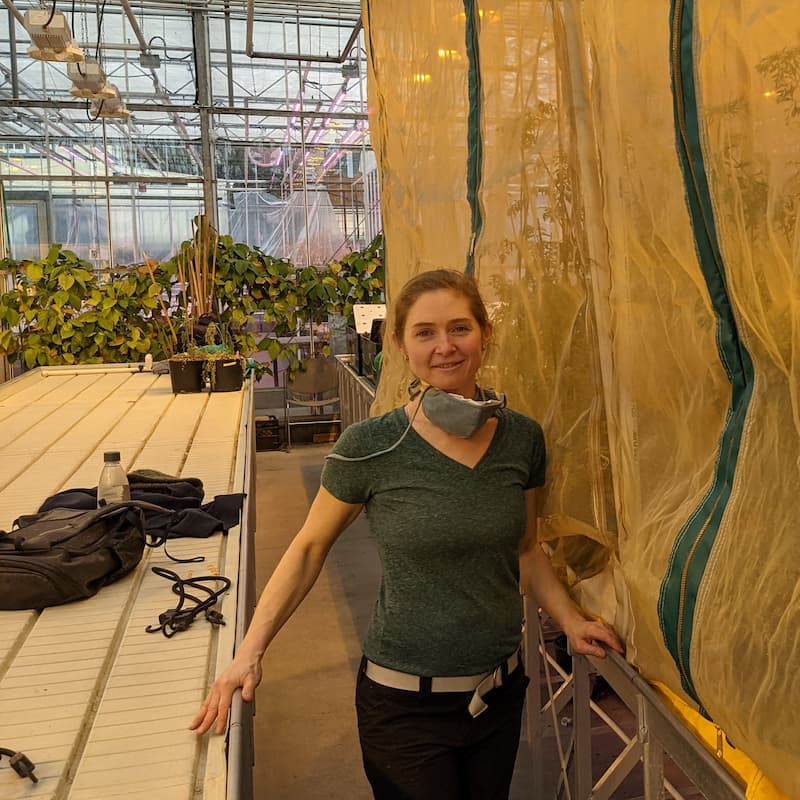Canadian Organic Vegetable Improvement (CANOVI)
Growing collaborations for vegetable crop research in Canada
Project Leads
Chris Thoreau, agrologist (Temporary)
Weijia Wang, postdoc researcher
Dr. Loren Rieseberg (Crop genomics and pre-breeding) University of British Columbia, BC (PI)
Project Team
Dr. Solveig Hanson (Cover crop breeding) Cornell University, NY, USA
Dr. Marney Isaac (Agroecology, functional traits) University of Toronto Scarborough, ON
Dr. Helen Jensen (Crop evolution, resistance to biotic stress) SeedChange, ON
Dr. Alexandra Lyon (Sustainable agriculture and food systems), Kwantlen Polytechnic University, BC
Dr. Michael Mazourek (Horticulture, organic vegetable breeding) Cornell University, NY, USA
Dr. Andrew Riseman (Agronomy, plant breeding) University of British Columbia, BC
Dr. Hannah Wittman, University of British Columbia, BC
Funding
Agriculture and Agri-Food Canada, Centre for Sustainable Food Systems at UBC Farm, Bauta Family Initiative on Canadian Seed Security, USC Canada
About the Project

Dr. Solveig Hanson in the greenhouse
Canadian Organic Vegetable Improvement (CANOVI) is a five-year collaborative project launched in 2018 by the UBC Centre for Sustainable Food Systems, the Bauta Family Initiative on Canadian Seed Security, and FarmFolk CityFolk.
CANOVI aims to contribute to the resilience and growth of Canada’s organic vegetable sector through the characterization and development of certain varieties that excel in Canadian organic farming systems. The CANOVI team works with regional farming organizations to coordinate on-farm variety trials where farmers generate and share data about regional variety performance. This project provides farmers with relevant information on commercial variety performance, and data from the on-farm trials contribute to a broader understanding of crop-environment interactions. CANOVI also supports three participatory plant breeding projects, using information from the variety trial. These projects provide examples of how universities, NGOs, and farmers can collaborate to facilitate decentralized approaches that address regional and crop-specific gaps in seed systems for sustainable agriculture.
An introduction to CANOVI with Chris Thoreau and Aabir Dey
SeedLinked variety trial software (https://www.seedlinked.com/) and Tableau data visualization are used to give farmers real-time access to variety performance information from across Canada. In addition, data from the CANOVI on-farm trial network contributes to broader understandings of crop-environment interactions through functional trait analysis. Finally, CANOVI supports participatory plant breeding projects that leverage farmer variety trial input for breeding decisions. These include:
- 1) selection of a long-storing orange Nantes-type carrot with excellent flavour and early vigor;
- 2) selection of a red Nantes-type carrot with deep red colour, good flavor and resistance to bolting in BC’s moderate temperatures and long daylight periods;
- 3) farmer-initiated breeding and commercialization of an early-maturing, blocky, red bell pepper
These projects represent collaboration among universities, NGOs, and farmer groups to facilitate decentralized plant breeding approaches that address regional and crop-specific gaps in seed systems for sustainable agriculture.
The UBC Farm serves as a field site for CANOVI vegetable variety trials and participatory carrot breeding, as well as a host site for field days.